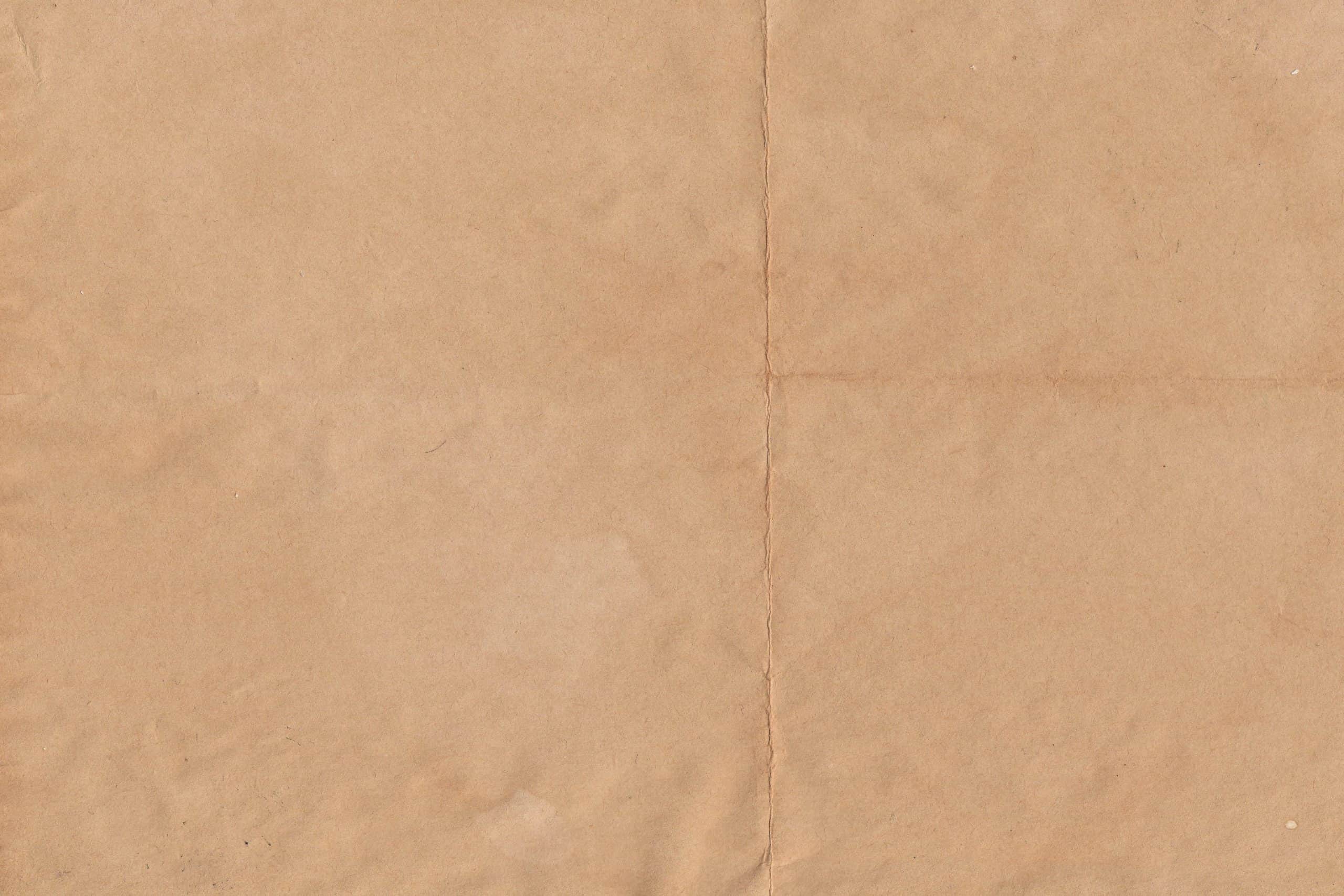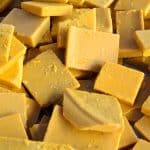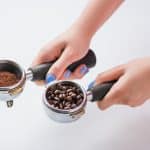Everyone is looking toward living a more eco-friendly lifestyle.
It starts with me – not far away but in my kitchen.
As we possibly know, kitchen papers are the cook’s best friend. And parchment paper isn’t an exception.
Presumably, you use parchment paper to line cake molds, wrap fish or make no-knead in a microwave oven.
It does wonder by making both cooking and cleanup easy. As we become overdependent on it, there’s an alarming question.
So is parchment paper (Baking Paper) biodegradable?
Parchment paper is a multi-functional sheet that features a silicone coating to give it non-stick properties.
I like how it provides a warm-resistant surface to bake on.
You’ll get two types of parchment paper – brown and white.
The manufacturers treat the white paper with chlorine to bleach it. On the other hand, the brown paper is unbleached.
In our post today, we’ll debunk parchment biodegrades or not. Let’s get started.
- Is Parchment Paper (Baking Paper) Biodegradable?
- What Brands Are Considered Biodegradable?
- Is Parchment Paper (Baking Paper) Compostable?
- How Long Does It Take For Parchment Paper (Baking Paper) to Decompose?
- Is it Safe for the Environment?
- Is it Safe for Household Use?
- Can I Recycle Parchment Paper (Baking Paper)?
- Is Parchment Paper (Baking Paper) Environmentally Friendly?
- How to Dispose of Parchment Paper (Baking Paper) Sustainably
- Final Thoughts
Is Parchment Paper (Baking Paper) Biodegradable?
Yes, it’s 100% biodegradable; however, not all parchment papers biodegrades.
The unbleached brown paper is fully biodegradable. To be sure of it, you need to pay attention to the manufacturer’s information.
The bleached white paper is likely to biodegrade, but it has several health issues because of chlorine traces.
It releases dioxins that can be hazardous to our body if they get into contact with food and water systems.
Just as a reminder, there are two kinds of papers:
- Bleached (white)
- Unbleached (brown)
Remember that a substance qualifies to be biodegradable if it can break down organically.
The bacteria or microbes start the decomposition process on parchment paper, hence minimizing polluting the Environment.
The FTC guidelines state that a biodegradable substance should completely break down and decompose “in the shortest time possible.”
With this, manufacturers are striving hard to make such products without misleading customers.
What Brands Are Considered Biodegradable?
Unbleached Chlorine-free parchment paper is fully biodegradable.
Whenever you’re making a purchase, make sure you check the ingredients used during the production process.
That should influence your buying decision.
Some brands break down within the reasonably shortest time. These include;
If You Care
Bakers should eye on If You Care parchment papers.
This brand is not the only FSC certified but also top quality.
First off, these sheets are made of greaseproof and unbleached paper.
The fact that If You Care products are free from chlorine bleach makes them suitable for the Environment.
Health-wise, there’s no chlorine run-off into water systems.
Even better, the paper is healthy to use and oven safe up to 428 degrees F. You can add it to your compost at home.
It’s also perfect for commercial composting. Simply put, you can reduce and reuse it.
SMARTAKE
Another reputable brand is SMARTAKE. It makes unbleached, grease-resistant parchment paper that meets the needs of conscious consumers.
Many of its products are non-toxic and non-stick, allowing them to handle room temperatures of up to 450 Degree F.
The pre-cut sheets are biodegradable. So, they take only a few weeks or a month to break down entirely.
You can shred them into small pieces to increase the composition rate.
Reynolds
Reynolds outclasses the competition as one of the dependable dealers in the kitchen papers industry.
It makes 75% chlorine-free parchment paper. Meaning the paper hardly has bleaching properties.
The paper meets all EN compositing products, which proves how it is harmless to the Environment.
Whether it’s in residential or commercial composting facilities, Reynolds paper is pretty compostable.
Hiware
This brand is unique and exceptional than others.
For every package you buy, you’ll get about 200 pre-cut sheets. Hiware paper is BPA-free because it is made from wood pulp.
Better still, the parchment paper is unbleached, chlorine-free, non-toxic, and fluorescent-free.
Alongside that, the paper is waterproof.
While most people are shifting towards environmentally friendly choices, this paper made of food-grade materials could be an absolute steal.
You can use Hiware papers in your microwave oven. The manufacturer recommends you use it up to temperatures of 450 degrees F.
Are there any alternatives?
Yes, there are. You can try the above brand and identify the one that suits you.
If considering a more eco-earthly alternative, then there are numerous brands out there for grab.
Nowadays, many companies make reusable and recyclable silicon sheets ideal for cooking and baking.
The sheets come in multipacks and are easy to clean.
While most are oven and dishwasher safe, it’s essential to check out with individual manufacturers.
Even some parchment papers will eradicate the need to use oil while cooking, especially in the Dutch oven.
As budget-friendly as they are, they’ll meet your culinary needs. You can check out online as you continue investing in your kitchen.
Is Parchment Paper (Baking Paper) Compostable?
Yes, parchment paper is compostable, but there’s some extra work to do.
Parchment can go to compost. A compostable product should easily break down into natural substances easily and quickly in a compost pile, leaving zero harmful chemicals in the ground.
Just cut the paper into pieces to speed up or hasten the composition process.
Unlike wax paper, parchment doesn’t feature a wax coating so that it will compost faster.
Many brands like If You Care and Raynolds claims that their baking parchment paper is wax-free.
Should these sheets have non-stick coating like silicone materials, then they won’t compost.
Parchment papers aren’t of the same type. It would help if you threw away some in the thrash rather than composting it: These are:
- Glossy parchment paper
- Fluorescent parchment paper
- All parchment papers printed with metallic foil
- Parchment paper containing residue from grease, meat, fish, and dairy products
- Waxy sheets
How Long Does It Take For Parchment Paper (Baking Paper) to Decompose?
Usually, it takes approximately 2 to 6 weeks in a bin to break down – That’s for unbleached, non-toxic paper.
Wax sheets take a more extended period of time than that. Other quality baking papers won’t decompose at all.
Is it Safe for the Environment?
Definitely yes, these sheets are safer for the planet than other materials such as aluminum foils.
Fortunately, silicone baking sheets are the best.
Parchment paper, which is coated with silicone, is non-stick. Nonetheless, low-quality silicone is moisture and warm-resistant.
Consider top-notch quality silicone such as food grade or medical grade.
These types of parchment won’t leach toxic chemicals during the decomposition process.
When it comes to personal preference, applying unbleached and old-school baking sheets is the way to go.
Most of them are wood-made, hence toxic-free.
For a parchment to be safe for the Environment, it should:
- 100% biodegradable
- Recyclable
- Renewable
Is it Safe for Household Use?
The simple answer is yes. As a godsend and multi-functional sheet in the kitchen, parchment paper can handle many tasks.
From wrapping chicken breasts and baking to covering countertops, it excels in all.
I’d recommend unbleached brown paper from a reputable brand. The paper is safe for household use because it’s chlorine-free that would otherwise release dioxins leading to harmful elements in our meals.
If subjected to high temperatures, though, silicone molds, fillers, and additives might produce a small amount of toxins in our foods.
Can I Recycle Parchment Paper (Baking Paper)?
No, it’s not easily recyclable due to food contamination. You’d want to go zero-waste in the kitchen, right? Admittedly, parchment paper is easy to use and very versatile.
I usually use it when baking or roasting in the oven.
The silicone coating gives it non-stick properties but is difficult to recycle. In most cases, it gets contamination with food residues, grease, or oils, making it lose quality during the recycling process.
Anything with such contaminants should not go at any time in your paper recycling bin. The good news is that you can recycle the box that the pre-cut sheets in. It’s cardboard.
For avid bakers, use reusable silicone roasting mats such as Sil Eco or Silpat to reduce waste.
Is Parchment Paper (Baking Paper) Environmentally Friendly?
Yes, but it depends on the type of parchment you’re having at hand.
The unbleached (brown paper) is entirely biodegradable so that it won’t harm the environment as such.
Lack of chlorine bleach cements this feature.
On the other hand, bleached (white paper) has chlorine traces that can seep into foods.
Moreover, it’s not sustainable as the baking paper is coated with silicone.
The pre-cut paper is brittle in the baking process.
For this reason, you’ll find them daunting to compost or recycle it.
How to Dispose of Parchment Paper (Baking Paper) Sustainably
Disposing of parchment paper has changed dramatically over time.
It would be best if you disposed of it sustainably to maintain an ecological balance and without depleting the natural resources.
New rules of thumb are:
- Composite it if possible. Unbleached parchment paper is compostable. Add it to your compost heap or garden.
- Cutting and punching. Shred it into small pieces before adding it to a thrash. That way, it will biodegrade and decompose within the shortest time.
- Use water. Some conditions may speed up the decomposition process. Natural factors like water will help break down the brown paper that is toxic-free.
- Hire a disposal company. To ensure these sheets are appropriately destroyed, hire a disposal company that can handle this for you. To mention, this comes at a fee but can save you time and energy.
Final Thoughts
All this time, I thought parchment baking paper is not biodegradable, but after rigorous research, we found that it is biodegradable.
As you get down to baking and roasting, pick up the Unbleached brown paper that tends to perform better than bleached white paper.


